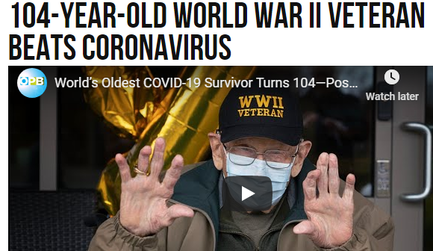|
With perpetual reporting of the COVID-19 virus, there has been a lot of panic reaction from the public, fostered by the media, as well as from local clinical staff. These reactions have brought existing issues in the healthcare system to the forefront, that we can address go forward, especially for discernment to champion better quality of care. The following two use case examples happened last week, which demonstrate panic reactions from clinicians, the need for good primary care, and the need to address care standards, especially in crisis, with sense at the delivery level. An immune suppressed mother has three children, one being a 10 yr. old daughter who woke with a 102 temperature and a sore throat. The mother is not reactionary, having good instinct regarding when her children are fighting off bugs, building up their immune systems. She phoned the pediatrician to ask for testing if it is strep or a virus. The pediatrician stated they only test for COVID-19 if someone is hospitalized, and they would not do a strep test, “Don’t bring your child in”, and then the pediatrician went on a rant about social distancing, “This virus will not end …” (with no reported cases in the area) etc. and simply ordered Amoxicillin. I don't want to give my daughter an antibiotic if she doesn't need it, and especially if it is a virus, let alone the Corona virus." Removing all emotion from the situation with her, we discussed getting zinc in EZC Pak from the CVS a mile away, that she could pick up via their drive through, along with foods high in Vitamin A to boost her daughter's immune system. I also called the local Urgent Care center explaining the situation: a mother immunosuppressed, her daughter is in the EMR system, she just wants a strep swab to avoid unnecessary antibiotics, to please have a nurse do the swab through the car window when she drives up - avoiding any cross contamination issues. They stated no problem.
The same week, a second mother of four small children, one being a seven year old who was having sore joints and some blood in her urine. The doctors in Green Bay did a wonderful job of a full, very detailed history and then exam with targeted tests, quickly diagnosing Rheumatic Fever. Her and her other three, healthy children were instructed to do proactive strep testing since they all had close exposure with the daughter. "The center made us feel like lepers. Instead of simply coming out to the car to meet us, they brought us to an empty lobby with a nurse who came out in a full hazmat suit to do simple strep swabs. The nurse freaked out when my son simply cleared is throat, creating anxiety, complaining, "He just coughed." The clinicians throughout both cases should have been calming, simply asking good questions, and then only ordering the correct test before ordering medication. And, in both cases, clinicians could have had the tests quickly, avoiding the waste of hazmat gear, not frightening healthy family members as well as not exposing them to potential germs in the health facilities - avoiding cross contamination issues. What we need to focus heavily on:
One point stood out regarding their focus that is so often missing in health systems: seeing 'clean' patients first, and then seeing contagious patients grouped together, ensuring avoidance of cross contamination, and minimizing the volume of masks, gowns or hazmat suits used.
Hopefully, many good things will come from this virus experience to positively shake up our healthcare system, including basic sense procedures, with the importance to rebuild and focus on great primary care again. Another glaring issue to address is the role of clinicians as cool, calm professionals, removing emotion when instructing with full information, with clearly explained options for informed consent and decision-making for delivery of quality care.
0 Comments
Leave a Reply. |
click an articleto read and post comments Search topicselect category
All
search by date
July 2024
|




